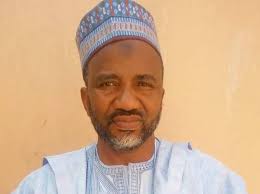In politics, a party with a superior strategy often wins an election. In Nigeria, ethno-religious sentiments rather than “policy issues” play a greater role in determining electoral victory which is why politicians will always deploy all ‘weapons” in their arsenal to gain power. The following reasons are some of the factors responsible for the “outcome” of the 2023 presidential election.
Fragmented opposition parties: In 2013, the then opposition parties of CPC, ACN, ANPP, and a faction of APGA merged and formed the APC for the 2015 elections. The nPDP, a faction of five governors, former VP, former governors, Speaker of the House of Representatives, several senators, and Reps later joined the APC and fielded a united candidate for the 2015 elections which defeated an incumbent president for the first time in the history of Nigeria’s politics. The then opposition CPC, ACN, ANPP, and APGA fielded different candidates in the 2011 presidential elections on their platforms and were defeated by the then ruling PDP.
In 2019, the main opposition PDP had Atiku-Obi joint ticket which got 11.2m votes while the then incumbent President Buhari of the APC got 15.1m votes. However, in the just-concluded 2023 elections, the former VP, Alhaji Atiku Abubakar of the PDP, got 6.9m votes, Mr Peter Obi of the LP got 6.1m votes, and Dr Rabiu Kwankwaso of the NNPP got 1.4m votes. The three major opposition parties got 14.5million votes while Bola Ahmed Tinubu of the governing APC got 8.7million votes. Obi and Kwankwaso were in the PDP ahead of the 2023 general elections. Kwankwaso left the party on March 24, 2022, two months to the party’s presidential primaries, on the issue of leadership crisis in the North-west zone. He alleged that despite micro zoning the position of the North-west vice chairman of the party to Kano state, they were denied a freehand to decide. Obi, on the other hand, left the party on May 24, 2022, less than three days to the party’s presidential primaries.
Obi’s effect: From 1999 to 2019 the then ruling PDP had always won elections landslide in Abia, Ebonyi, Enugu, Imo, Anambra, Edo, Cross River, Rivers, Delta, Akwa Ibom, Bayelsa, Plateau, Taraba states, and the FCT. In the 2023 elections results, Obi dislodged the PDP and won landslide in Abia, Ebonyi, Enugu, Imo, and Anambra states. He also dislodged the PDP and won with good margins in Edo, Cross River, Delta, Plateau, and Nasarawa states and the FCT. Obi did a serious damage to the PDP’s votes in Akwa Ibom, Bayelsa,Taraba, Adamawa, and Kaduna states, where the PDP won.
In the 2023 results, Obi got 582,454 in Lagos state against PDP’s 75,750 votes. In 2019, Atiku-Obi joint ticket got 448,015 votes in Lagos. In 2019, Atiku-Obi ticket got 649,612 in Kaduna state, but in 2023 PDP got 554,360 while LP got 294,494 votes. In 2019, Atiku-Obi ticket got 356,817 in Benue state while in 2023 where APC won in presidential elections, LP came second with 308,722 against PDP’s 130,081votes. In 2019, Atiku-Obi ticket got 548,665 in Plateau state, but in 2023 LP won with 466,272 against APC’s second position of 307,195 and PDP’s third position of 243,808.
G-5 governors’ rebellion: The opposition PDP and five of its 14 governors went into the elections sharply divided. Then Governor Samuel Ortom of Benue state declared for Obi openly while then Governors Wike of Rivers, Makinde of Oyo, Ugwuaniyi of Egunu, and Ikpeazu of Abia remained silent up to the election day. Atiku-Obi ticket in 2019 without a sitting governor in Oyo state got 365,229 votes, but the PDP with an incumbent governor in 2023 got 182,977 votes. In 2019, Atiku-Obi ticket got 473,971 votes in Rivers state, but in 2023 it came third with 88,468 votes. However, apart from the G-5 governors’ factor, in 2019, Kwankwaso was in the PDP and the then Atiku-Obi ticket came second in Kano state with 391,593 votes, but in 2023 the PDP came third with 131,716 votes behind the NNPP’s first with 997,279 votes and the APC’s second of 517,341 votes.
Unity of the ruling APC: At a time the “main” opposition party lost two of its presidential aspirants very close to their primaries, the ruling party got seven aspirants stepped down for one of its presidential candidates on the day of their primaries. When the ruling party’s governors who are the key stakeholders in the polity resolved the issue of zoning of their presidential ticket, the “main” opposition party was sharply divided on the issue. When the “main” opposition party failed to resolve its post-presidential primaries “disagreement” which led to the emergence of G-5 governors, the 21 state governors of the ruling party unanimously supported and campaigned for their presidential candidate. The governors of the governing APC deployed all their arsenal to support, campaign, and deliver their presidential candidate.
The electoral “umpire” had done its part by conducting the elections and announcing the results. The winner has emerged, rejoiced and moved on to set up his government. However, both opposition PDP and LP who came “second” and “third”, according to the results announced by INEC, claimed victory in the election. Interestingly, both candidates and their parties have taken the civilised path by going to court to prove their various allegations of malpractices against the winner. This is the right thing to do!
One of the many bitter lessons that the opposition parties should learn is that their pre-election disunity has done more harm than good to them although we have observed some level of “alliances” and “cooperation” among the opposition post-election. The court has asked the three parties in court to harmonise their “petitions” against the winner.
As we await the court’s verdict, Bola Ahmed Tinubu was sworn in on May 29, 2023 just as in 1999, 2003, 2007, 2011, and 2019 when there were court cases against the INEC’s declared winners.
God bless Nigeria!
Dauda writes from Kaduna, Kaduna state via




